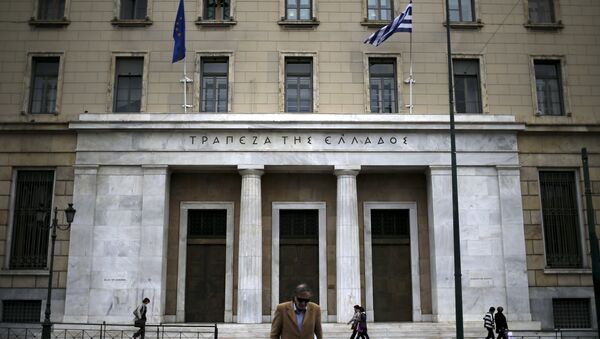The ECB carried out a review of the four banks as part of an agreement reached between Greece and its European creditors in August, which set out the conditions of the EU's three-year financial assistance program to provide up to 86 billion euros in assistance to the country via its European Stability Mechanism.
The agreement underscored that the recapitalization of Greek banks, which are still hampered by restrictions on cash withdrawals and cross-border payments, will be a key pillar of the country's economic recovery. It envisaged that it would be necessary for up to 25 billion euros of the loan to be used to meet their potential capitalization needs.
The review assessed their balance sheets using a range of economic scenarios which could transpire over the coming three years, including a baseline scenario, which would require another 4.4 billion euros in capital, and an adverse scenario, which would necessitate up to 14.4 billion euros through the end of 2017.
The adverse scenario envisages the possibility of a more severe downturn in the Greek economy. In such a scenario, consumer and business confidence would drop further in response to restrictions on cash withdrawals from deposits and on cross-border payments.
In addition, a turbulent end to the ESM financial assistance program, and increased political uncertainty would also hit confidence in the economy. As a consequence, there would be a reduction in private consumption and fixed investment, which would negatively impact the property market, reducing demand and prices for real estate.
The four banks now have to propose capital plans to the ECB which will cover the entire 14.4 billion euro shortfall, out of which a minimum of 4.4 billion is expected to be covered with private means.
"Covering the shortfalls by raising capital would then result in the creation of prudential buffers in the four Greek banks, which will facilitate their capacity to address potential adverse macroeconomic shocks in the short and medium term and their capacity to improve the resilience of their balance sheet, keeping an adequate level of solvency," wrote the ECB on Saturday.
Draft bill on Greek bank recapitalisation submitted to Greek Parliament #Banking https://t.co/ZWew82jgRW pic.twitter.com/DwbIukchUN
— Proto Thema English (@eprotothema) 30 октября 2015
The Greek parliament approved a bank recapitalization bill on Saturday, according to which lenders will seek to raise capital from shareholders and bondholders, before turning to the 25 billion euro buffer provided by the agreement with the nation's creditors.
The Greek government wants to complete the recapitalization of the banks before the end of 2015, after which a new European directive on bailouts will come into force, and impose a haircut on bank deposits in Greece over a limit of 100,000 euros.




